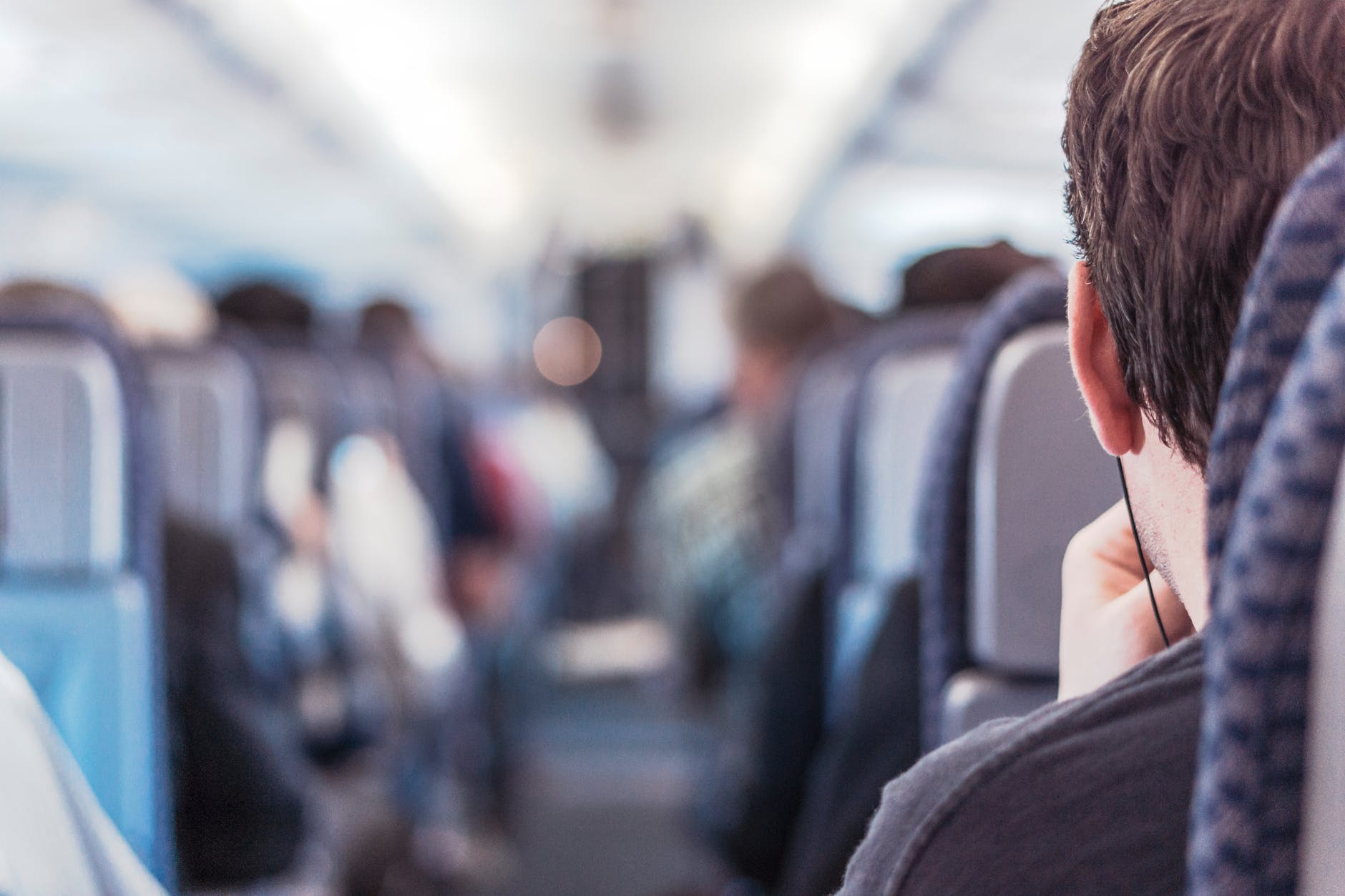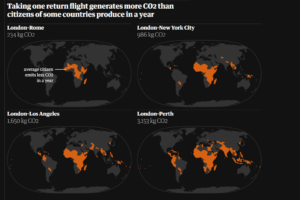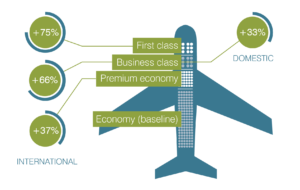Climate conscious travel: what can you do?

In the second of two new blogs on climate conscious travel, SRS Projects Coordinator Siôn Pickering shares some top tips for becoming a “climate conscious traveller”.
What is a Climate Conscious Traveller?
Carbon Emissions from Business Travel at the University of Edinburgh are growing at a significant rate (read my previous blog to find out why). We understand that travel is essential for the development of collaboration, increasing cultural awareness, and facilitating knowledge sharing. However we also understand that some of the travel undertaken by the University could be adapted to lower carbon alternatives. Because of this we are now starting to promote the concept of “Climate Conscious Travel”.
What can you do?
Here are some steps you can take to become a Climate Conscious Traveller.
1. Understand your travel
The first step to making an individual behaviour change is to understand the impact of our individual travel. If you are part of the University, you can find details of your School / Department’s travel via the Business Travel Report.
If you would like more detailed information, then we are looking at providing individual level data towards the end of 2019 – watch this space!
In the meantime, use this interactive article by The Guardian to figure out the emissions of a recent or upcoming flight you’re taking. This calculator shows the carbon emitted per journey, and how it compares to the annual carbon output per capita of countries. For example, using this calculator, a flight from Edinburgh to Rome emits 332 kg CO2. There are 30 countries worldwide where the average person produces less CO2 than this in a year. Unfortunately this calculator doesn’t cover all possible journeys, but covers 100’s of major destinations so is a good place to start.

Screenshot of the Guardian’s calculations
An alternative system is the new system created by the Lufthansa Group called Compensaid where you can create an account to track your flight emissions over time. If you don’t fancy setting up an account, you can still establish the carbon emissions from a single flight.
Once you have better understood your personal travel, it is time to take action. This doesn’t have to be drastic, life-changing action (although we would definitely appreciate this). Instead it starts with more simple decisions.
2. Go Digital
Think about whether your travel could be exchanged for a virtual meeting. The University supports a number of different systems depending on the specific needs. Many of these systems are designed to work with existing University logins such as EASE or Microsoft Office 365. You can find out more about these on the SRS website.
More and more conferences are offering virtual passes as a way of increasing accessibility. Not only will this reduce your carbon output, it will save travel time and financially too. If you are organising a conference or event, then speak to us to see how we can support you to introduce virtual elements.
3. Travel slow
Should travel be essential, the next action you can take is to consider how this travel is undertaken. A general rule of thumb is that the slower the mode of travel, the lower the carbon emissions per km. When we’re talking of travelling outside of Edinburgh, this quickly becomes a choice between a train and plane. Per km, planes emit at least 5 times the amount of carbon compared to a train (with some calculations suggesting this could be as much as 8 times higher). When train is an option, we highly recommend this as the chosen mode of transport. Not only is it less carbon intensive, we have seen that these journeys are often less expensive than their air equivalent.

Trains vs planes: average data from 3 popular destinations made for University of Edinburgh Business Travel in 2018/19
The biggest factor for these journeys then becomes travel time. For journeys to many destinations within the UK, including London, Manchester, Birmingham, it is often as quick to take the train “door-to-door”. Not only this, but you don’t have to worry about luggage allowance or carrying liquids. For domestic journeys further south (e.g. Cardiff, Exeter, Southampton), time taken by rail can be significantly more than by air, and it is up to the traveller whether this time is best spent working whilst on the train, or not.
4. Think space
Where travel is essential, and flights are the only option, then considering the class of travel is really important. The higher the class of travel, the more space each seat takes up. Possibly better for traveller comfort, but it also means that you will be using up a greater proportion of the aircrafts emissions, which is definitely not so good.

Increase in emissions by class of air travel
5. Go Direct
Take direct flights where possible. Although sometimes taking indirect flights may save you financially, take-off and landing are the most carbon intense sections of a flight. An indirect flight will include a greater number of take-off and landings compared to direct flights. Coupled with the additional distance travelled by flying indirectly means carbon emissions from a journey will increase dramatically.
6. Offset emissions
Consider offsetting your carbon for your travel. Once you have calculated your travel emissions (see step 1), here are many schemes out there that you could sign up to that will help offset the emissions generated. As a department, we have started to explore offsetting our annual departmental emissions using a third party scheme. In 2018/19 this equated to 35 tonnes of CO2e from our travel, energy and building heating, and procurement. We understand this is not a long term solution, but will alleviate some of the emissions we produce in the short term.
7. Pledge to fly less
If you are concerned by the size of the University’s business travel emissions, then you can sign up to the Academic Flying Blog pledge to reduce your personal travel on behalf of the University. This is an external pledge set up by academic staff in the USA, however it resonates with us at the University of Edinburgh.
You can also join 100,000 others in pledging to be Flight Free across all areas of your life throughout 2020.
One last thing…
You can also talk to us to find out more about what we’re doing, and how your team might be able to get involved. This could be by inviting us to a team meeting to raise awareness of business travel at the University, or to share your innovative ways of reducing business travel within your teams. We are always keen to show how these ideas can be transferred to other areas of the University.
We believe the University can continue to prosper on the global stage whilst also reducing related emissions from business travel. We need your support to make this happen.
Find out more about climate conscious Business Travel at the University of Edinburgh





Recent comments